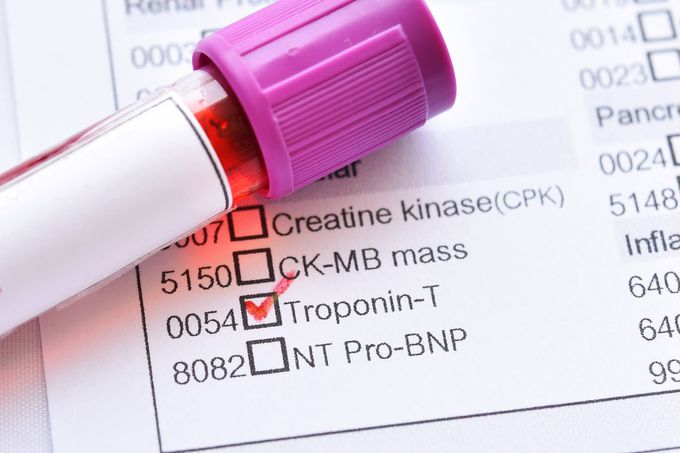


Raised Troponin: Acute Coronary Syndrome, or Something Else?
Troponin I and T released from injured cardiac cells is one of the key diagnostic tests for evaluation of various cardiac conditions. However, the troponin levels can be raised secondary to non-cardiac conditions as well as cardiac conditions other than acute coronary syndrome and obstructed myocardial infarction. Described below are few cardiac and non-cardiac conditions that clinicians and emergency medicine residents should take into consideration while making a diagnosis on the basis of elevated troponin levels: o BROKEN HEART SYNDROME Raised troponin with ST-elevation may be secondary to catecholamine-induced cardiac injury. This condition can be differentiated from MI based on lower levels of troponin as compared to MI. o PERICARDITIS Despite no troponin in pericardium, elevated troponin is seen in 32% to 49% patients of pericarditis. o TACHYCARDIA 28% cases of elevated troponin with normal coronary angiogram are secondary to tachycardia. The cause may be increased oxygen demand. o PULMONARY EMBOLISM Ventilation-perfusion mismatch, increased pulmonary artery resistance and hypoperfusion may result in raised troponin levels. o SEPSIS & SIRS Myocardial ischemia secondary to oxygen supply and demand mismatch consequently increases troponin. o HEAT STROKE Numerous etiologies result in raised troponin in approximately half of heat stroke patients. o BURNS Troponin is elevated in elderly patients and in burns involving more than 15% of body surface. o UPPER GASTROINTESTINAL BLEEDING Raised troponin is associated with increased mortality o CARBON MONOXIDE POISONING AND COCAINE USE Acute myocardial injury results in increased troponin levels Even though troponin is principal diagnostic tool for cardiac evaluation, other non-cardiac issues should be kept in differential diagnosis and be ruled out on the basis of further investigations. Source: An emergency medicine approach to troponin elevation due to causes other than occlusion myocardial infarction https://pubmed.ncbi.nlm.nih.gov/31864875/ (Image taken from https://www.thecardiologyadvisor.com/general-cardiology/increased-troponin-t-levels-common-in-covid-related-ards/)

